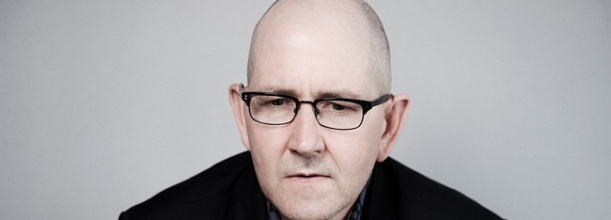Interview! We talk to Life, Above All director Oliver Schmitz

If you’re any sort of decent human, you’ve already seen the unforgettable African drama Life, Above All, which was longlisted for this year’s Academy Award for Best Foreign Language Film and gained plaudits across the globe for its uniquely human approach to the AIDS pandemic. We were lucky enough to catch up with South-African born director Oliver Schmitz during his recent visit to London, and this is what he had to say:

How did you first get involved with the project?
When I got involved it was a book and no more. The producer found this book and said “You’re from South Africa, how about this?” I read it and I found it an incredibly moving story; this young girl and her perspective on a disintegrating family situation, her relationship with her mother and all the complexities of that. It was an important factor that it was a unique and different perspective on the issue of AIDS in South Africa, but primarily what interested me was how this family in small town South Africa was flung apart and how this young girl coped with it. The book [Chanda’s Secrets] was written by a Canadian, so we got some money from Canada from scriptwriting and we found a Canadian scriptwriter who came to Berlin, then we all went to South Africa together. We spent many months together on Skype writing the script, which was a great experience, but I think what really fired us up was going to South Africa and meeting some of the orphans whose parents had died from AIDS-related illnesses. There was particularly one girl who was fourteen and for four years already had been looking after a younger brother and sister alone without any assistance; one neighbour would bring food sometimes, they had a sister who came once a month with some dried beans and the equivalent of one or two pounds, no more, and they were completely vulnerable. And then I realised that this is really the story of Chanda as well, and of her friend, and it gave me a very important insight; I went to look at statistics and saw that there were at least 800,000 kids like this in South Africa. I was so blown away by this figure. It’s like an invisible predator, everybody is thinking – rightly – about all these people who have died from AIDS in South Africa, but nobody’s thinking about all these kids.

That’s an extraordinary statistic. Had you felt previously that you wanted to make a film which highlighted this aspect of the AIDS crisis, or was it serendipitous?
I had a few very good friends who passed away because of AIDS, but I wasn’t there looking for the story. I’ve made films about social issues, but I really hadn’t put myself out there saying I had to work through a top 10 list of social issues – the story kind of found me and I thought “Wow, this is a good story and an important one.” For me, it also gave a face to all these children and, in a sense, my gut feeling to use kids from that area, who’d never acted before, was a big gamble but it put a big face on all those kids as well. For me, it was a very rewarding experience.
South Africa’s international portrayal in cinema is somewhat limited – there are a lot of films set in places like Soweto [where Schmitz made Mapantsula]. What made you want to shoot in Elansdoom and use a Sefedi script?
The rationale was to shoot in an area where there was a village or small-town atmosphere, where everyone knows each other, goes to the same church, has the same language and values – almost a white picket fence suburb. The big city’s anonymous, it works on so many different levels with poverty and depictions of Africa; I wanted to get away from all that, so when we found [Elansdoom] I thought this is perfect. It had a feeling of an African society, not this kind of big-city mix of African consumerist poverty, everything clashing on top of each other. It’s a world where everything seems to be in order, but essentially under the surface there’s something very wrong.

Was there a significant AIDS problem in the town itself?
The interesting thing about the town was that there was a private clinic run by a Dutch doctor, who has raised money from Richard Branson, Bill Gates and other people and who has done very good work in terms of treatment – especially at a time when the South African government did not provide treatment. He made treatment available and gave a lot of pepple hope that there is a way of living with the disease. The young actress who plays the lead [Khomotso Manyaka], her mother’s actually a counsellor at this clinic. There’s a very empowered situation there. On the other hand, these very same kids we met live in this community as well – they do have outreach programmes, but nevertheless there’s stigma. There’s a public face to the AIDS issue and a private face too – there’s all this fear and stigma even in the midst of change and dealing with the issue.
The actresses playing Esther and Chanda were complete novices, and several of the other main cast members had never acted onscreen before. How was it working with such a mixed bag of artists on an already-complicated location shoot?
The main thing was making the decision to use the youngsters – there was a lot of casting and rehearsal beforehand to come to a decision. It was a big gamble at first, but when Khomotso did a casting with her screen mother they were fantastic together. They did a runthrough of the scene where the mother combs Chanda’s hair, and Lerato [Mvelase, who plays Chanda’s mother Lillian] said there was an affinity there. You have two very different youngsters in temperament. Khomotso is very quiet but has this incredibly calm energy; the camera loves her, and in her own way she really embodies the character, she doesn’t try to act. Whereas Keaobaka, who played [Chanda’s best friend] Esther, wanted every step of the way to become an actress – she stood outside the production office every day for weeks until I said yes. She had this burning desite – Khomotso wanted to be a doctor and just came along to casting to have a look.

This is your third feature film and the third to be set in South Africa. Do you have plans to shoot elsewhere?
I’ve had movie offers in Germany as well; I started making one but walked away when I realised it wasn’t meant to be. The South African stuff just keeps coming! I’m making another film in South Africa starting in early 2012, a very emotional story about a warder on Death Row when hanging still existed in South Africa – it’s a situation of trauma in the same sort of way it happens to young soldiers. He’s a young man who’s unprepared for taking part in the killing process, which he does a hundred and sixty four times in the state of one year before having a psychotic break, killing a whole load of people and ending up in court, charged with murder himself and heading back to Death Row where he worked.
Is something that’s based on real life?
Yes. It’s not based on one story, but it’s based on real life. It’s a very powerful book called Shepherds and Butchers – the premise is that you can’t be both at once, can’t accompany these prisoners through their whole time on Death Row, giving them comfort, and then take them up to the gallows, hang them, take them off the rope and bury them. A very intense story.

How do you feel about the way in which South Africa is portrayed in mainstream cinema?
I think there are quite a lot of films made in South Africa, but I’d like to see more South Africans making them! A lot of people have come to make movies in South Africa. I think Clint Eastwood did a pretty good job with Invictus, it’s the best I’ve seen from an outside perspective, but although it might not matter for an international audience for me it doesn’t quite gel. So what I’m passionate about is making sure South African stories are told with South African actors, and with a kind of intimacy that I try to achieve in my films as well. I’d like to see more of that happening, because I think the stories are there, the actors are there and it’s slowly happening – you have the hybrid situation of projects like District 9, which is fantastic, so there’s actually quite a lot going on.
Oliver Schmitz, thank you very much.
Life, Above All was released nationwide on 27th May. Go and see it right now. Message ends.





Recent Comments